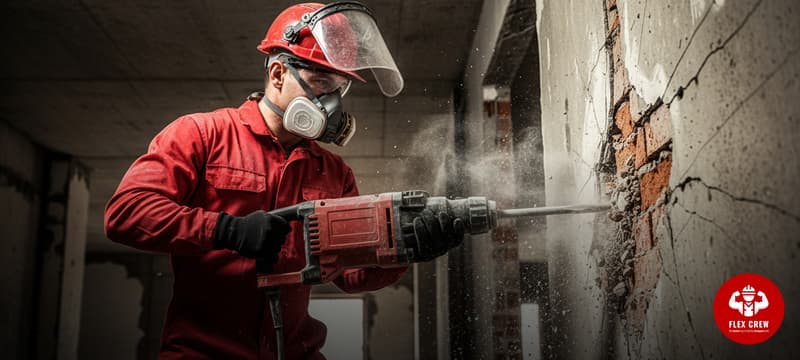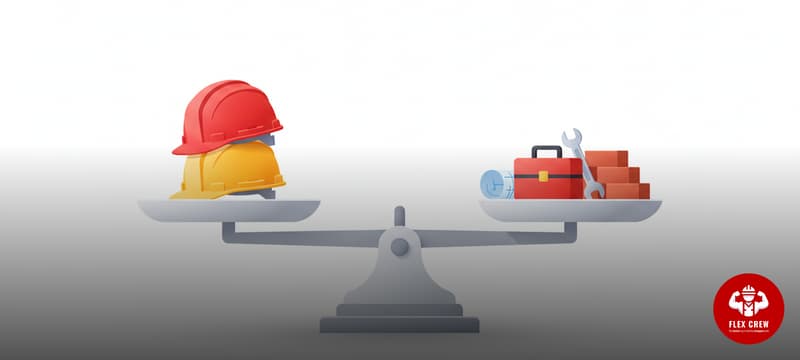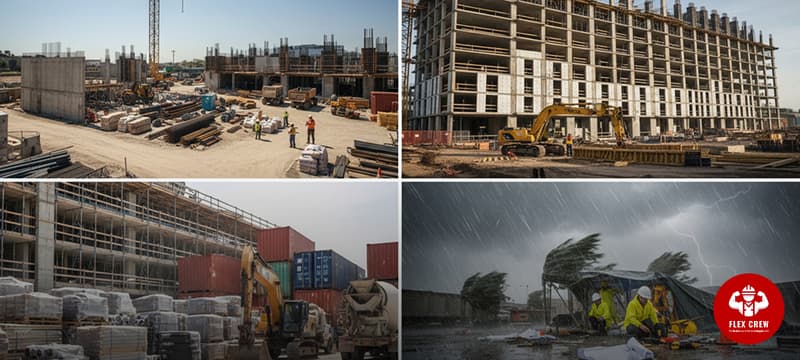Ever drive past a construction site and wonder how those workers handle the blazing sun, heavy machinery, and backbreaking labor day after day? You're not alone. Most of us have comfortable office jobs where the biggest physical challenge is walking to the coffee machine. But construction workers? They're operating in a completely different world.
If you've ever been curious about what really goes on behind those orange cones and hard hats, you're about to get the real story. We talked to actual construction workers - the guys who show up before dawn and leave after dark, covered in concrete dust and sweat. Their stories might surprise you, and they'll definitely make you appreciate the next bridge you drive over.
So what's the hardest job in construction? The answer isn't simple, and it's definitely not pretty.
The Quick Answer: Construction's Toughest Jobs
The hardest jobs in construction, according to workers themselves:
- Rod Busting (Rebar Work) - Hauling 180-pound steel bars in 90-degree heat
- Roofing - Working on steep slopes in extreme weather
- Concrete Work - Racing against time as concrete sets
- Fiberglass Installation - Dealing with toxic particles and constant itching
- Heavy Equipment Operation - Managing massive machinery in dangerous conditions
These jobs combine extreme physical demands, serious safety risks, and working conditions that would make most people quit after a single day. But here's what makes it even tougher - it's not just the physical part. It's the mental toughness needed to show up every single day knowing what you're getting into.
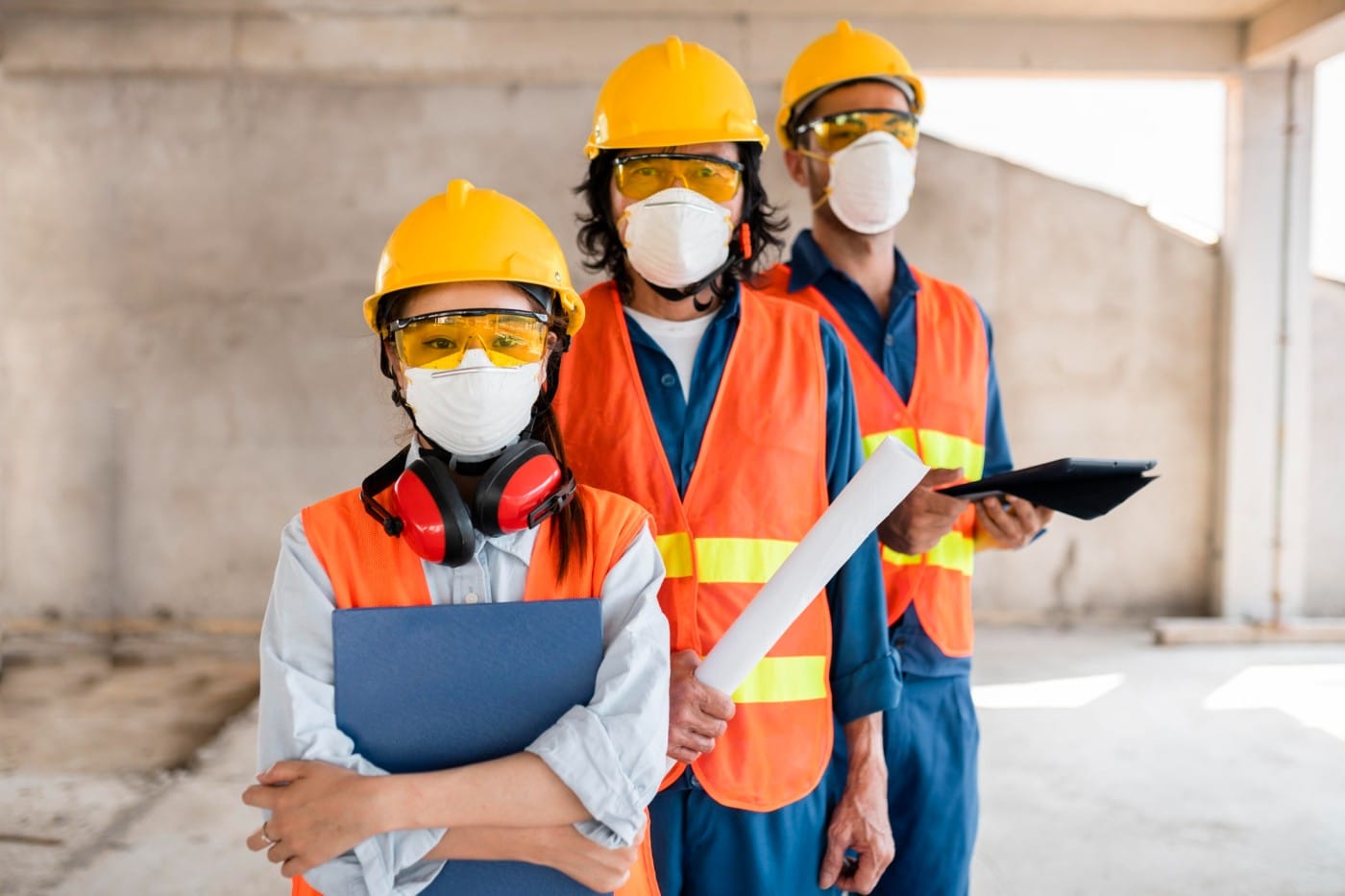
The Reality Check: What Construction Workers Actually Say
"I can honestly tell you I feel like rod busting rebar iron work is the hardest construction trade there is in the industry," says Jack Thomas, a veteran iron worker with decades of experience. "You got to be a little bit twisted to really like this."
That's not workplace bravado talking - that's reality.
Picture this: It's 10 AM, already 90 degrees with 80% humidity. You're carrying steel bars that weigh 180 pounds each, walking across unstable surfaces, with about 20 more trips to go. Your shoulders are screaming, your back is aching, and you haven't even hit lunch break yet. This is just Tuesday for a rod buster.
But it's not just the rebar guys who have it rough. A concrete worker puts it bluntly: "Most people do come concreting just for one day and they never come back."
Why? Because concrete doesn't wait for anyone. Once that truck arrives, you're racing against chemistry itself. The concrete is setting whether you're ready or not, whether you're tired or not, whether it's 100 degrees or not. Miss your timing, and you've got a expensive disaster on your hands.
Then there's the roofing work. One worker remembers: "I've done roof tiling, I've done carpentry and to me concrete is one of the hardest but I reckon roof tiling was pretty hard. Carrying them tiles on the roof was [expletive] hard in hot weather. I've seen people just drop out, faint all the time."
Imagine being perched on a steep roof, 30 feet off the ground, hauling heavy tiles in blazing heat. One wrong step, one moment of heat exhaustion, and you're looking at a potentially fatal fall. No wonder people "just drop out."
Top 5 Hardest Construction Jobs: The Real Deal
1. Rod Busting (Rebar Work): The Ultimate Test of Strength
If construction had an ultimate fitness test, rod busting would be it.
Rod busters are the iron workers who install rebar - those steel reinforcement bars that make concrete structures strong. Sounds simple enough, right? Wrong. Each bar weighs about 3.25 pounds per foot, and they come in 60-foot lengths. Do the math: that's nearly 200 pounds of steel you're hauling around.
But it's not just about moving one bar. As veteran rod buster Jack Thomas explains, "By the time this project is done this crew will have installed over 21 million pounds of rebar." That's not a typo - 21 million pounds.
The physical demands are insane. You need upper body strength to carry the bars, lower body strength to walk on uneven rebar surfaces without falling, and the endurance to do this all day in whatever weather shows up. "Upper body strength is mandatory, so is lower body strength," Thomas notes.
And here's the kicker - rod busters are paid by the pound. No work, no money. So taking breaks isn't really an option when you've got bills to pay.
2. Roofing: Working Where Angels Fear to Tread
Roofing consistently ranks as one of the most dangerous and physically demanding construction jobs, and anyone who's done it will tell you why.
First, there's the obvious danger - you're working on a sloped surface, often 20-40 feet off the ground. One slip, one moment of inattention, and you're looking at serious injury or death. The statistics back this up: roofing has one of the highest injury rates in construction.
But it's not just the height that makes roofing brutal. It's the conditions. Roofs absorb and reflect heat like crazy. On a 90-degree day, the roof surface can hit 150 degrees or more. You're literally working on a giant hot plate while carrying heavy materials and trying not to fall.
"Carrying them tiles on the roof was [expletive] hard in hot weather. I've seen people just drop out, faint all the time," recalls one worker. Heat exhaustion isn't just uncomfortable - it's dangerous when you're working at height.
Winter roofing isn't any better. Ice, snow, and freezing temperatures make everything more dangerous. Your hands go numb, making it harder to grip tools and materials, while icy surfaces turn every step into a potential disaster.
3. Concrete Work: Racing Against Time and Chemistry
Concrete work is unique in construction because you're literally racing against time. Once that concrete truck shows up, the clock is ticking. Concrete doesn't care if you're tired, if it's too hot, or if you're not quite ready - it's going to set whether you are or not.
"Most people do come concreting just for one day and they never come back," says one concrete worker, and it's easy to see why.
The physical demands are relentless. You're pushing wheelbarrows full of concrete, operating heavy screeds (those long leveling tools), and working bent over for hours. Your back takes a beating, your arms burn from the constant motion, and you're usually doing this in hot weather because that's when most concrete work gets scheduled.
But the mental pressure might be even worse than the physical demands. Mess up concrete work, and you don't just start over - you jackhammer out thousands of dollars worth of ruined concrete and start from scratch. The pressure to get it right the first time, while working fast enough to beat the concrete's setting time, creates stress that follows you home.
Plus, concrete work is messy. Really messy. You end the day covered in concrete dust, your skin dried out from the lime, and every muscle aching. It's not glamorous work, but someone has to do it.
4. Fiberglass Installation: The Job That Gets Under Your Skin (Literally)
Here's a job that sounds innocent enough until you actually try it. Fiberglass installation involves cutting, fitting, and installing fiberglass materials for insulation, boat building, or in this case, bulletproofing vehicles.
One former fiberglass worker describes the experience: "When you cut it when you're like sawing it there's all this fiberglass dust particles all over, fiberglass dust everywhere... I was always itchy and you're sweating because it's a summertime in Boston so it's [expletive] 90 degrees outside and it's all humid and you're in this attic and you just breathe in that [expletive]."
The fiberglass particles get everywhere - in your skin, your lungs, your clothes. Even with masks and protective equipment, you're constantly itchy. The particles are so fine they work their way through clothing and into your pores. Imagine having a permanent case of the itches that won't go away no matter how much you shower.
But it's not just uncomfortable - it's potentially dangerous. Inhaling fiberglass particles over time can cause serious respiratory problems. Even young, healthy workers recognize the risks. "I remember thinking this [expletive] can't be good," recalls one worker who lasted exactly two weeks before quitting.
The combination of physical discomfort, health risks, and working in hot, cramped spaces makes fiberglass work one of those jobs that looks easy from the outside but drives people away fast.
5. Heavy Equipment Operation in Extreme Conditions
Operating heavy machinery might seem easier than manual labor - after all, you're sitting down, right? But experienced operators will tell you it's one of the most mentally and physically demanding jobs on a construction site.
First, there's the responsibility. You're operating machines that cost hundreds of thousands of dollars and can seriously injure or kill someone if you make a mistake. An excavator bucket can crush a car. A crane dropping its load can demolish a building. The mental pressure is constant.
Then there's the physical demands that people don't see. Operating heavy equipment requires incredible concentration and fine motor control for hours at a time. Your hands, arms, and back are constantly engaged, making tiny adjustments that look effortless but are actually exhausting.
The conditions make it worse. Equipment operators work in all weather - blazing heat, freezing cold, driving rain. Many older machines don't have air conditioning, so you're sitting in a metal box in 100-degree heat. The noise is constant and damaging to your hearing. The vibration rattles your entire body for 8-10 hours a day.
And unlike other construction workers who can take quick breaks, equipment operators often can't stop. When you're part of a concrete pour or working with a crew, stopping the machine stops everyone else's work.
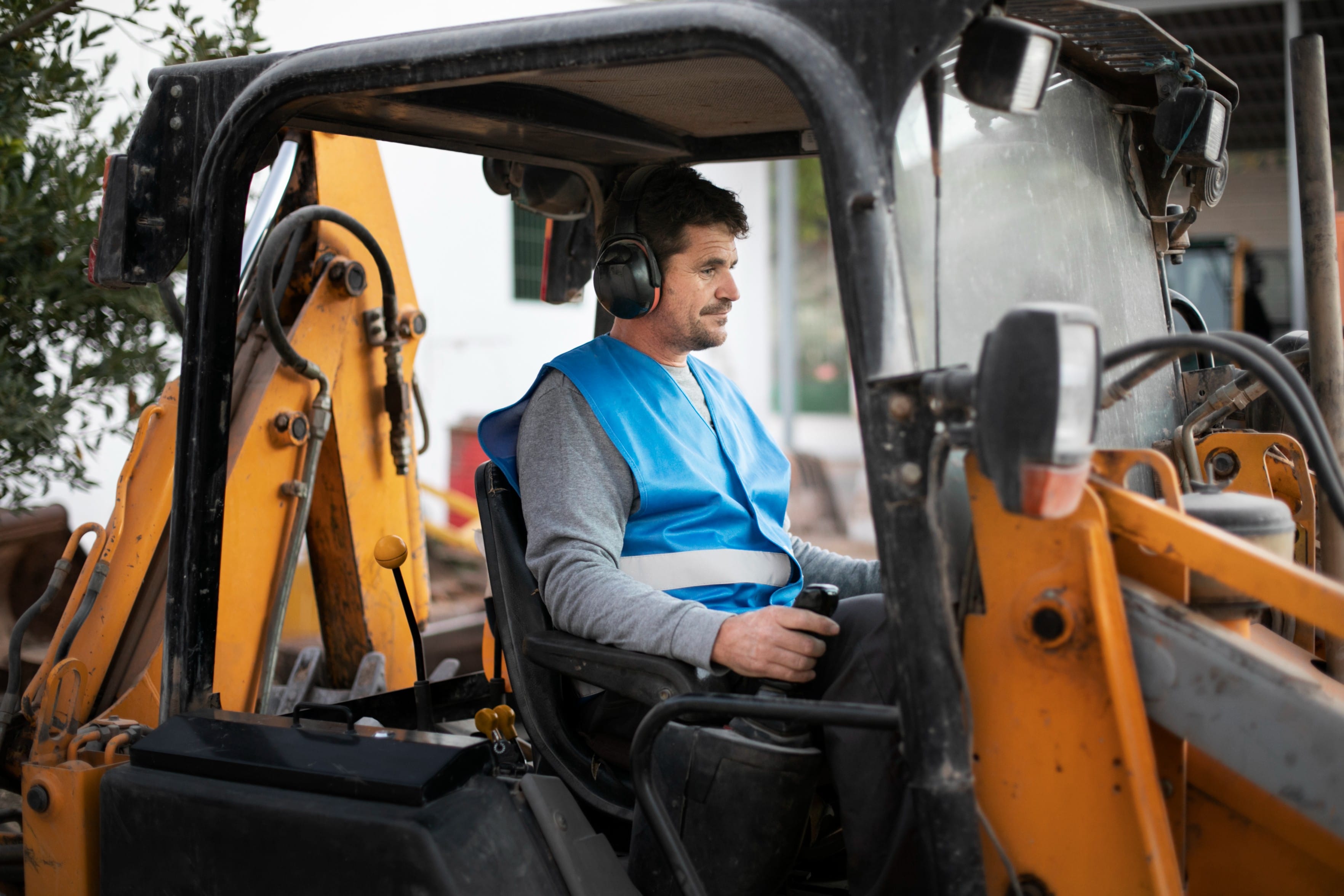
Why These Jobs Are So Incredibly Tough
Understanding what makes these construction jobs so difficult goes beyond just the obvious physical demands. It's a combination of factors that would challenge even the toughest people.
The Physical Demands Are Relentless Construction work doesn't give you time to ease into it. From day one, you're lifting heavy materials, working in awkward positions, and using muscles you didn't know you had. There's no "light day" in rod busting or concrete work - every day is a full-body workout in the worst possible conditions.
Weather Doesn't Matter Office workers complain when the air conditioning is too cold. Construction workers do their jobs whether it's 10 below zero or 110 degrees. Rain, snow, wind - the work continues. Heat exhaustion and frostbite aren't theoretical risks; they're real dangers these workers face regularly.
Safety Risks Are Everywhere Construction consistently ranks among the most dangerous industries. Falls, equipment accidents, electrocution, and being struck by objects are daily risks. Workers develop a kind of hypervigilance that's mentally exhausting - you have to be "on" every single moment because a second of inattention can be deadly.
The Culture Is Tough Construction sites aren't known for being gentle, supportive environments. The culture tends to be rough, direct, and unforgiving. As one worker noted, you're often working alongside "convicted felons and drug addicts and general distasteful people." While that's a harsh generalization, it points to a work environment that can be as mentally challenging as it is physically demanding.
Time Pressure Is Constant Construction projects run on tight schedules with expensive penalties for delays. Workers feel constant pressure to work faster, even when faster might mean less safe. This pressure creates stress that goes home with workers every night.
The Flip Side: Why Workers Stay Despite Everything
With all these challenges, you might wonder why anyone stays in construction. The answer reveals something important about the people who do this work.
Pride in Building Something Real There's something deeply satisfying about building infrastructure that will last for decades. Rod busters know that their work will be hidden by concrete, but they also know that without their skills, bridges would collapse and buildings would fall. "There's a lot of pride in doing this type of work because knowing that it's not for everybody," explains one iron worker.
The Money Can Be Good Skilled construction workers, especially in specialized trades like rod busting or crane operation, can earn excellent wages. The physical demands and risks come with compensation that often exceeds what college graduates make in office jobs.
Job Security Society will always need infrastructure. Bridges, buildings, roads, and utilities aren't going anywhere. While individual projects end, the need for skilled construction workers is constant.
The Brotherhood Despite the rough culture, many construction workers develop strong bonds with their crews. When you go through tough conditions together, you form relationships that last a lifetime. There's a camaraderie in shared struggle that's hard to find in other industries.
Conclusion: These Workers Deserve Our Respect
The next time you drive over a bridge, walk into a building, or flip on a light switch, remember the rod busters who installed 21 million pounds of rebar in brutal heat. Think about the concrete workers who raced against time to pour your foundation. Consider the roofers who risked their lives to keep you dry.
These aren't unskilled laborers doing mindless work. They're skilled tradespeople performing some of the most physically and mentally demanding jobs in our economy.
At FlexCrew, we take pride in and deeply respect our skilled workers. We are who we are because of them. If you're looking for reliable workers for your next project, we're here to help.
They face conditions that would send most of us running after just one day and they do it with a sense of pride and toughness that's truly admirable.
If you're considering a career in construction, go in with your eyes wide open. It's not for everyone, and there's no shame in recognizing that. But if you can handle the physical demands, the risks, and the rough culture, you'll find work that pays well, provides job security, and lets you build the infrastructure that keeps society running.
And to everyone else - the next time you see construction workers taking a break in whatever shade they can find, maybe don't judge them for it. They've probably earned it in ways most of us can't even imagine.
FAQ
1. What is the hardest construction job?
The hardest construction job can vary depending on the climate and the types of projects common in your area. However, across most regions, workers often rank rod busting (rebar work) and roofing as the toughest. For example, in hot states like Texas or Arizona, roofing becomes even more dangerous because of extreme heat and steep slopes. In New York or Chicago, winter adds icy challenges to jobs like concrete pouring or rebar work. No matter the region, these jobs are physically punishing and require serious mental toughness to handle the risks and heavy labor involved.
2. Why is rod busting considered the toughest job in construction?
Rod busting also known as rebar work is considered the toughest because it combines intense physical demands with constant safety risks. Workers haul 180-pound steel bars, walk across unstable surfaces, and often work in extreme heat or cold. Every step is physically taxing, and the stakes are high: these steel bars form the backbone of bridges, buildings, and highways. Rod busters get paid by the pound, so there’s a constant push to keep moving. One veteran worker put it bluntly: “You got to be a little bit twisted to really like this.” It’s a job that requires both brute strength and serious determination.
3. How dangerous is working as a roofer?
Roofing is one of the most dangerous construction jobs anywhere, but in places like Florida (where it’s hot and humid) or Minnesota (where winter ice is a hazard), the risks multiply. Roofers work 20–40 feet off the ground, balancing heavy materials on steep slopes. In extreme heat, the roof can reach 150 degrees, leading to heat exhaustion or worse. In icy conditions, one slip can be fatal.
It’s why roofing consistently ranks among the highest for injuries in the construction industry.
4. What are the most physically demanding construction jobs?
According to real workers and safety experts, the most physically demanding construction jobs include:
Rod busting (rebar work) – carrying heavy steel bars all day
Roofing – hauling tiles or shingles in intense heat
Concrete work – constant bending, lifting, and racing against the clock
Fiberglass installation – working in cramped, itchy conditions
Heavy equipment operation – long hours of intense concentration and vibration
These jobs require strength, endurance, and the mental toughness to do it every day.
5. Why do some construction workers stay in these tough jobs?
Despite the challenges, many workers stay in tough construction jobs because they value the sense of pride, job security, and good pay that come with the work. They know they’re literally building the future-bridges, homes, and skyscrapers that will stand for decades. The money can be good, and there’s a unique brotherhood that forms when you work side by side with others in tough conditions. As one iron worker said, “There’s a lot of pride in doing this type of work because it’s not for everybody.”
